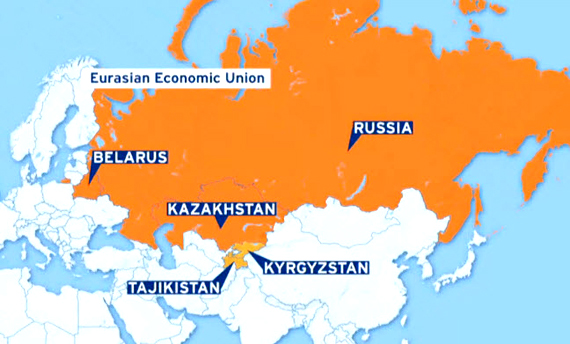Maria Pastukhova and Kirsten Westphal (Stiftung Wissenschaft und Politik)
On 1 January 2015, a new integration grouping – the Eurasian Economic Union (EEU) – was established by three former ex-Soviet countries, namely Russia, Belarus and Kazakhstan. The trio of the founding members was later joined by Armenia and Kyrgyzstan. In the same year, the basic contours of the main pillar of the new organization, which is designed to link energy sectors in the member countries, were developed. The architects of the EEU have already drafted plans to connect oil, gas and electricity markets. The integration will lie in the unification of technical standards and in the harmonization of legal conditions as well as in the reduction of customs duties and quantitative restrictions.
Although the EEU Member States can profit from the synchronization of their respective energy policies, the establishment of the organization has given rise to some controversy and concerns. Critics warn that the organization will be an obstacle both for the European Union, whose common energy policy had the ambition to include also the Eastern Partnership countries, and also for China and its integration project, the “Silk Road”.
Moreover, there are doubts regarding the – albeit formally symmetric but in reality likely asymmetric – influence of the individual EEU member countries. The Russian energy products account for a vast majority of all items that will be traded within the common energy market, whereby it is once again Russia that is also the largest contributor to the EEU’s budget. The notion that Russia will in return claim a decisive say within the main political body of the organization does not appear to be unfounded.
In spite of this, the EU leaders should, however, not only closely monitor the developments around the EEU but also actively seek dialogue with the representatives of the organization. The harmonization of technical standards and other legal norms between the EU and the EEU may be in fact mutually beneficial and different political motivations in this case should be subject to pragmatic and rational decisions, from which the end consumer will benefit the most.




